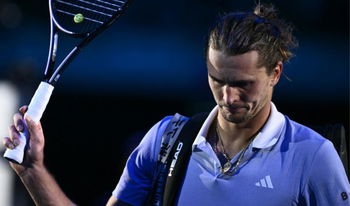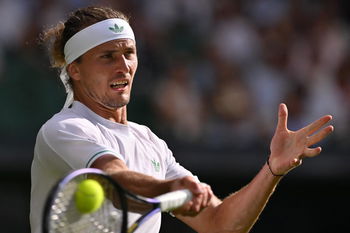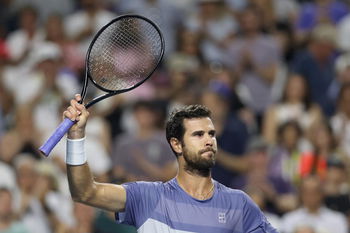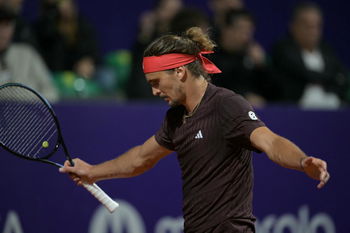He doesn't need therapy—it could cause much bigger problems," psychologist analyzes Zverev's case

In an interview shared by *Punto de Break*, German performance coach Thomas Baschab discussed the situation of his compatriot Zverev. According to him, the struggles currently facing the world No. 3 are not linked to any form of depression, but rather to issues of loneliness and what he calls "energy balance."
This term refers to a scientific principle concerning the equilibrium between energy absorbed and expended by the body. It’s not just about calories but all the interferences affecting it, such as stress, environment, or fatigue.
"I’m not at all surprised by what’s happening to Zverev—what surprises me is how the public is handling this issue. I’ve often read that Alexander is mentally weak because he’s lost three Grand Slam finals, but that’s complete nonsense. If a player like him had mental weaknesses, he would never have become world No. 2. His problem is related to something entirely different.
In Zverev’s position—that of a top-tier athlete—loneliness sets in quickly. I work with several high-level executives: CEOs of major companies are usually the loneliest people out there. The issue with these individuals is that they lack independent interlocutors, just like Alexander. Everyone he communicates with depends on him. His brother, father, mother, and girlfriend are all tied to him through a very tight-knit network of relationships. There are no eye-level conversations, hence the loneliness.
I don’t think he needs therapy—it could cause much bigger problems. What he needs is an experienced coach to help stabilize his energy balance. I’d advise him to take a break, regroup, and recharge. Of course, after actively addressing the issue.
He needs to strengthen his own energy system so that it can’t be broken mid-match. I don’t think he’s at risk of depression; Wimbledon was just a moment where his mood was negative. Still, I take my hat off to him for being able to express his thoughts so precisely in public.














 When tennis stars change courts: from Noah the singer to Safin the deputy, another match – the battle of reinvention
When tennis stars change courts: from Noah the singer to Safin the deputy, another match – the battle of reinvention  As a laboratory for tomorrow’s tennis, does the Next Gen Masters have a future?
As a laboratory for tomorrow’s tennis, does the Next Gen Masters have a future?  Tennis: the little-known truths about the offseason, between rest, stress and physical survival
Tennis: the little-known truths about the offseason, between rest, stress and physical survival  What if tennis lost its soul? The case of robotized officiating, between tradition and a dehumanized modernity
What if tennis lost its soul? The case of robotized officiating, between tradition and a dehumanized modernity 